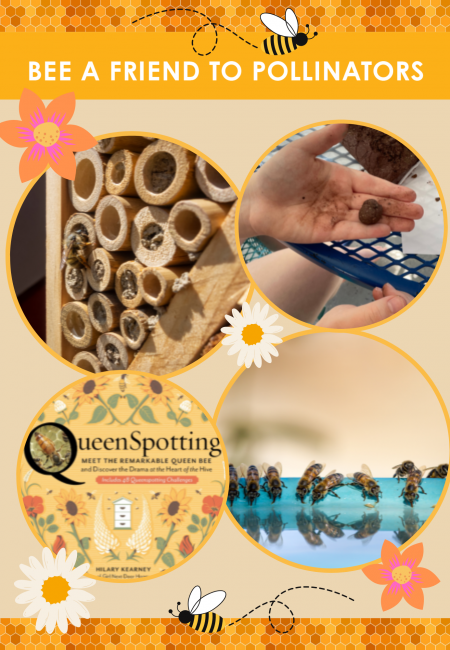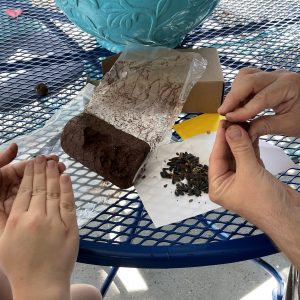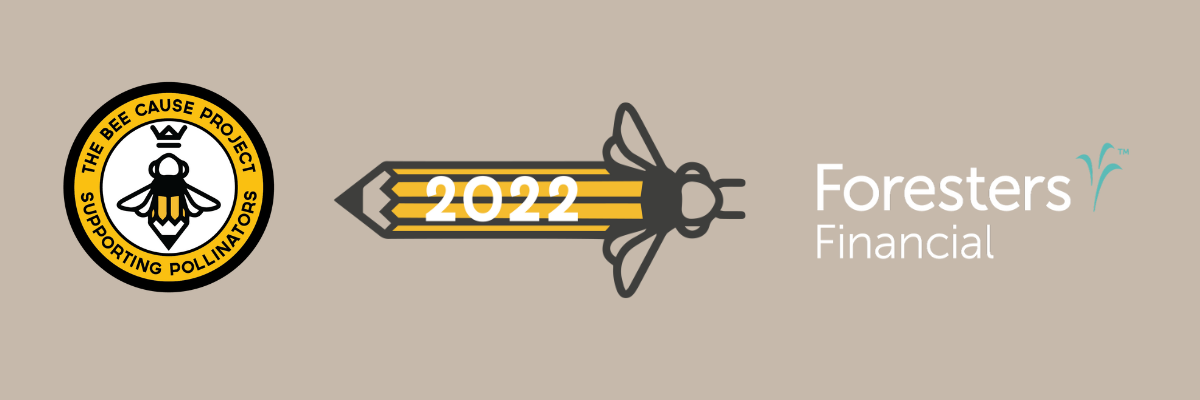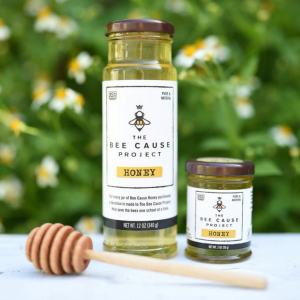Bee A Friend to Pollinators School Program
Brought to you by Foresters & The Bee Cause Project
Program Purpose
The Bee Cause Project and Foresters Financial would like to help you Bee A Friend to Pollinators at your school campus this year. Our top priority is providing quality programming that is comprehensive and easily shared with your community. Read on to learn more about the program details and ways we will help you deliver each component with confidence.
Through this program, we help schools make small changes to improve pollinator habitats and promote even bigger changes in their communities while supporting pollinator literacy. The program is meant to provide the tools that schools need to (1) host an in-person Volunteer Work Day with the team from Foresters Financial, (2) install pollinator-friendly habitat spaces on campus, and (3) continue the pollinator-educational experience with bee-themed pollinator activity kits and literature for students. Collectively, these steps will increase awareness of the plight of pollinators and inspire students to become environmental stewards.
We’ve created a unique package of books, activities, materials, and suggestions for how to execute the Volunteer Work Day at your school. However, there is flexibility in how you execute the program based on your programming needs. Our intention is to provide support to ensure the greatest impact and value are achieved.
Thank you for your enthusiasm and commitment to pollinator education. We look forward to you joining our network and hope you will be inspired to Bee a Friend to Pollinators. Please stay in touch with us on Facebook and Instagram at @thebeecause and @Foresters. We would love to see how you use this program in your community, tag us when applicable.


Program Description
Your school is receiving materials to host a Bee A Friend to Pollinators Volunteer Work Day and provide in-school activities that support the Bee A Friend to Pollinators campus assessment and lesson plan. The program is intended to help you utilize the time and effort with the team from Foresters Financial, install pollinator-friendly habitat spaces on campus with your students, and extend the pollinator-educational experience with bee-themed activity kits and literature for students. The materials selected for this program are pollinator-focused, student-centered, and age-appropriate.
Checklist for the Volunteer Work Day Materials:
- 15 Seed Ball Kits – each kit makes 100-120 seed balls
- 3 Chalet Bee House Kits including Leafcutter Bees (these will be shipped separately)
- 20 Burlap Bags – for Volunteers
- 20 Kraft Envelopes – for Volunteers
Checklist for the Educator’s Materials:
- 1 Bee a Friend to Pollinators School Program Educator’s Guide
- 2 Bee a Friend to Pollinators Lesson Plan & Campus Assessment
- 30 My Pollinator Journals – for Educator and Students
- 1 Bee a Friend to Pollinators Poster
- 1 Save the Bees Bracelet Activity Kit – 25 participants
- 1 Food Doesn’t Grow in Supermarkets Activity Kit – 25 participants
- 1 Metal Bee Bath
- 1 Outdoor Sign – for display near your pollinator garden space
- Classroom Set of Pollinator-Friendly Books – Elementary Level Book Set or Middle/High School Level Book Set depending on your grade level
How do I get started using all of these resources?
We recommend working with your administration and staff to form a Pollinator Team. Work as a team to decide how you will utilize the resources in the kit based on your unique needs. Hosting a Bee A Friend to Pollinator Event at your library is as easy as providing a read-aloud opportunity with one of our Book Club Challenge activities, assessing your campus with the lesson plan provided, and establishing your new pollinator-friendly grow bag.
Why are pollinators important?
Protecting our planet’s most precious pollinators should be everyone’s top priority. Bees are responsible for pollinating 70% of the top 100 food crops worldwide, that is one in every three bites of food on our plates. These hardworking insects also pollinate a wide variety of plants that provide food for other animals, and in the case of honey bees, produce wax, honey, and propolis. Bees, butterflies, hummingbirds, flies, moths, and many other pollinators are also vital to our ecosystem providing food resources for other animals. Check out this resource – The Critical Importance of Pollinators.
How do I know if my campus is pollinator-friendly?
Great question! The Bee A Friend To Pollinators Lesson will help your Pollinator Team and your Event Guests determine your friendliness based on how many pollinating insects you find. And we’ve got easy suggestions on how to be more friendly as a result of this program.
Why do we make seed balls?
To make them easier to sow!! Essentially, a seed ball is a mass of pre-planted seeds. This means that the seed begins its lifecycle as soon as it meets moist soil or matrix material. The seeds do not sprout right away if you dry the seed ball out first. Once they are spread or sowed in your neighborhood they have a higher chance of survival. Did you know that seeds only need one single burst of light to start their life? This is why we keep them in paper packets and in cool, dry places.
Where can I find more information about Native Bees?
Native bees are fascinating and unique to each region of the country. We suggest researching what kinds of native bees live in your area. Students can get involved too. We recommend Kiddle.co for kid-friendly research. Check out these videos for more information – Mason Bees Are A Gardener’s Best Friend and Native Bee Diversity in North America.
How do I know what will grow in my area to attract pollinators?
We recommend using this Ecoregional Planting Guide to learn more about what works in your area. Then talk to your local plant nursery to find out more about year-round blooms and proper soil use.
Who is The Bee Cause Project?
We are a non-profit organization with a mission to inspire the next generation of environmental stewards while protecting our planet’s precious pollinators. We offer grants and programs to schools and libraries across the country to support pollinator education in the classroom including STEAM curriculum and beekeeping resources. Learn more by watching Meet The Bee Cause Project.
Pollinator education is our passion! We would love for you to help us raise awareness about the plight of pollinators. We offer numerous free resources for all ages. Click on the title above to enjoy and share pollinator-themed book suggestions, lesson plans, virtual field trips, and other resources to help us inspire young environmentalists!
Bee a Friend to Pollinators!
Want to learn how to make your backyard more pollinator-friendly? Join Ms. Patricia to help pollinators where you live, go to school, and where you play. Ms. Patricia will tell you about an exciting project you can do in your own backyard called Bee a friend to Pollinators. Produced with the Bee Cause Project and Clemson Cooperative Extension. After watching Ms. Patricia, you can download your own backyard assessment!!
The Bee Cause Project private label honey is available at Savannah Bee Company
Do you love honey? Our friends at Savannah Bee Company created private label honey to benefit our mission at The Bee Cause Project. Proceeds from the purchase of this honey help us to protect pollinators. Please go to Savannah Bee Company to purchase a delicious sweet treat!



